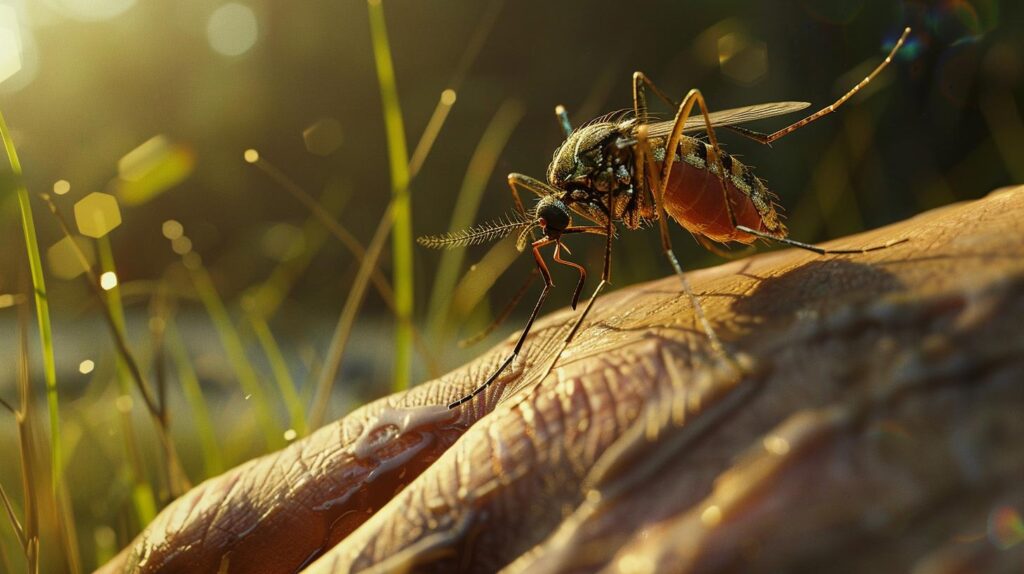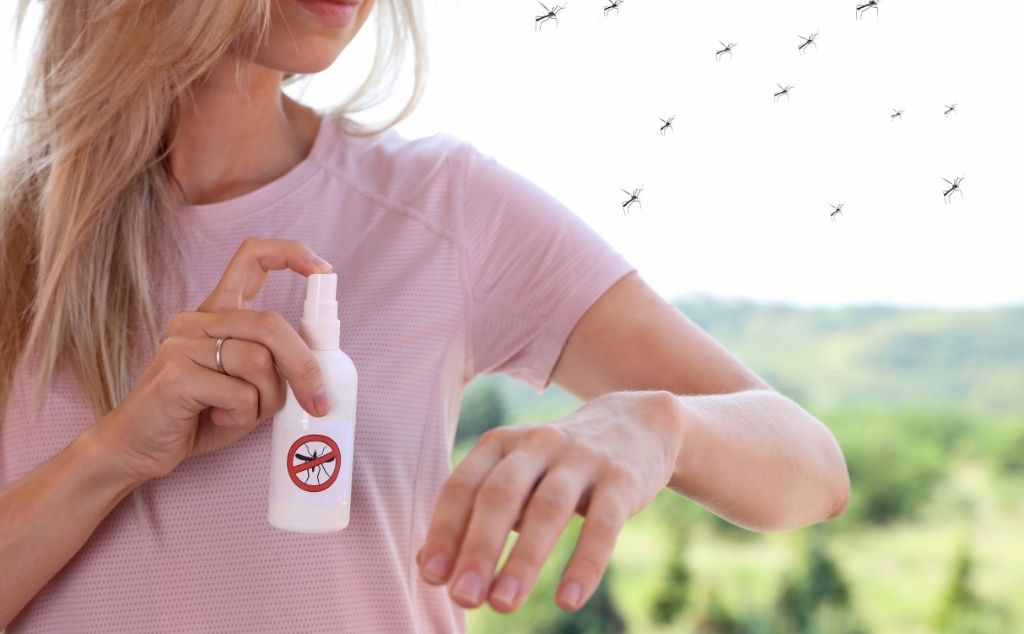What Really Works to Get Rid of Mosquitoes: Proven Methods and Expert Tips
Ah, mosquitoes—the tiny, buzzing vampires that turn a perfect summer evening into an itchy nightmare. We’ve all been there, slapping our arms and legs in a futile attempt to fend them off. But what really works to get rid of these pesky invaders?
You’ve probably heard about DEET, that mysterious-sounding chemical that makes you wonder if you’re spraying bug repellent or some sci-fi concoction on your skin. But lets get serious about our mozzies removal strategy with the tips below..
Proven Methods to Eliminate Mosquitoes
Want to know what really works to get rid of mosquitoes? Here are some proven methods to keep these pests away.

Water Management
Stagnant water is a mosquito magnet. They need just a small amount of standing water to breed. Make sure to:
- Empty any buckets, flowerpots, or toys collecting water.
- Clean birdbaths and pet water dishes regularly.
- Check gutters for clogs that might trap water.
- Fix leaky outdoor faucets immediately.
Landscape Modification
Your yard’s layout can either deter or attract mosquitoes. To keep them at bay:
- Trim the grass and bushes to reduce shaded areas.
- Remove leaves, grass clippings, and any debris.
- Use mosquito-repelling plants like marigolds, lavender, and rosemary.
- Apply DEET-based repellents only to exposed skin and outerwear once a day.
- Avoid applying DEET under clothes to prevent skin irritation.
- Consider natural options like cinnamon oil, catnip oil, and citronella oil.
- Treat clothing with permethrin for added protection – but never apply it directly to skin.
Techniques to Control Mosquitoes Inside and Outside Your Home
Managing mosquitoes can be a hassle both indoors and outdoors, but there are proven methods to keep these pests at bay.
- Effectively eliminate most flying insects: mosquito, Aedes, gnats, midges, flies, horse flies, fruit flies, house flies, moths, wasps, etc. Please use this exterminator at night and in the dark.
- EPA registered: The bulb light attracts flying insects, and the high-voltage electric grid zaps them on contact. Efficient physical mosquito control. So you don’t have to put up with the smell of sprays, insecticides and attractants. You also don’t have to worry about your pets eating insects that have been killed by pesticides.
- Light weight & Easy to use: It’s very light so you can hang it everywhere you like. No warm up, Starts working when plugged in.
- Easy to clean & Replaceable bulb: Dead bugs will fall onto the tray, you just need to clean the tray with brush provided. 15W Bulb is replaceable. If your bulb becomes less effective at attracting flying insects, you can replace it.
- Our bug zapper area coverage up to 1/2 Acre. Good for home, patio, balcony, courtyard, front porch, garden, pergola, deck, backyard, camping, swimming pool, garage, farm, etc.
Last update on 2025-04-23 / Images from Amazon Product Advertising API
Do Scented Candles or Plants Work?
Many turn to scented candles and plants to deter mosquitoes. Citronella candles offer some relief but won’t provide long-lasting protection. Usually, they repel mosquitoes for about 30 minutes at best. Some plants like lavender, lemongrass, and marigold emit scents that mosquitoes find unpleasant, but their efficacy varies. Positioning these plants around seating areas might help, but don’t count on them alone for comprehensive mosquito control.
Indoor Prevention Strategies
Indoor strategies focus on preventing mosquitoes from entering and thriving inside. Installing window screens can keep mosquitoes out. Use fans, as the breeze makes it hard for mosquitoes to land. Mosquito traps that use UV light can be surprisingly effective. Keep an eye on areas prone to standing water, like potted plants and sinks. Consider using indoor insecticides or repellents, especially in areas where mosquitoes are prevalent.
Outdoor Mosquito Control Tactics
Outdoor tactics revolve around eliminating breeding grounds and using targeted repellents. Regularly check and empty anything that collects water like birdbaths, gutters, and old tires. Treat standing water with mosquito dunks or bits containing Bti (Bacillus thuringiensis israelensis), a bacteria toxic to mosquito larvae but safe for pets and wildlife. Create barriers by applying permethrin to outdoor gear and clothing. For areas like patios, spraying insecticides around vegetation and dwelling perimeters can help reduce mosquito populations. Keep grass and shrubs trimmed to minimize resting spots.
- Kills mosquitoes before they’re old enough to bite
- The only product with bti, bacteria toxic only to mosquito larvae
- Lasts for 30 days and treats 100 square feet of surface water
- Non-toxic to all other wildlife , pets, fish, and humans
- Labeled for organic gardening by the usepa
Last update on 2025-04-23 / Images from Amazon Product Advertising API
Why Essential Oils & Other Botanicals Aren’t Effective
Using essential oils like citronella, lavender, and lemongrass to repel mosquitoes sounds great. They’re natural, smell good, and feel like a safer choice. But they don’t quite deliver when it comes to keeping mosquitoes at bay.
The scent from oils dissipates quickly. This means frequent application, which isn’t practical for long-lasting protection. Studies have shown that these oils provide only short-term relief from mosquito bites, often just minutes to an hour.
Comparing essential oils to DEET reveals a significant effectiveness gap. DEET works for up to several hours. In contrast, lavender or eucalyptus oil needs constant reapplication and won’t cover you during peak mosquito activity times, like dusk.

Essential oils can cause skin irritation. Lavender oil and others may seem benign but can provoke allergic reactions or sensitivities, especially when used repeatedly. I’ve got friends who’ve ended up worse off using these botanicals versus more reliable repellents.
Some believe planting mosquito-repellent plants like marigolds or planting basil around the yard will help. While some plants contain compounds that repel mosquitoes, they aren’t much help unless you crush the leaves or have a high concentration of them indoors.
So, while I love a natural approach when it works, essential oils and certain plants won’t do nearly enough to protect you from bothersome mosquitoes.
Reviewing Mosquito Control Products
Here’s a quick recap for ya on what to get to keep those mozzies at bay.

Natural vs. Chemical Solutions
Natural solutions include essential oils like cinnamon, geraniol, and citronella. Cinnamon oil, at a 10% concentration, can protect against mosquito bites for over 60 minutes. Geraniol and 2PEP (2-phenylethyl propionate) offer protection for around the same time at the same concentration. However, citronella oil only works for about 30 minutes. Though natural, these options require frequent reapplication.
On the other hand, chemical solutions like DEET are highly effective. DEET, despite some misconceptions, has an excellent safety record. It protects against mosquito bites for over 90 minutes at a 10% concentration. Though it’s not a pesticide by definition (it doesn’t kill insects), it provides superior protection. Always follow label directions and apply only once a day to exposed skin and outerwear—not under clothing.
The Role of Professional Pest Control Services
Sometimes, home remedies just don’t cut it. Professional pest control services can treat areas inside your home to eliminate mosquitoes effectively. These experts know where mosquitoes rest, often targeting dark, humid places like under sinks, in closets, and behind furniture. They use indoor insect sprays or foggers that kill mosquitoes quickly, but reapplication might be necessary. For a thorough approach, hiring professionals ensures that all potential breeding and resting spots are treated.
Pest control professionals follow the National Pest Management Association’s tips, helping you make informed decisions about mosquito control. Their expertise can offer peace of mind and a mosquito-free living space.

